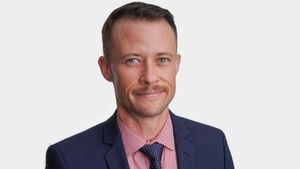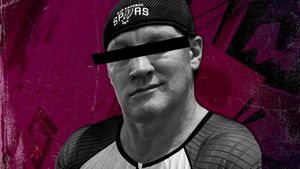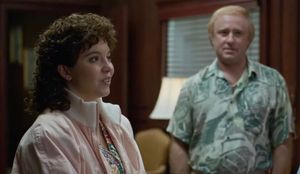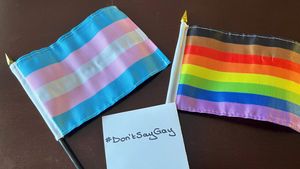Imagine all the worries, questions, and concerns that would race through your mind on the day you were diagnosed with HIV. The endless barrage of worst-case scenarios runs on a loop as you try to gather yourself and somehow make it to a safe place to sort it all out.
In this moment, the world probably seems as if it will never be the same again as you vacillate from feelings of numbness to restless panic. And even though you think time has stopped, soon it has been a week, then a month, and then years since that day in the clinic when you thought your life was over. It wasn’t.
Life goes on, and sometim es it can even get better post–HIV diagnosis if you have the right medical and emotional support. Sure, things might be a little more complicated, but it is by navigating those complications that you get to know yourself and find the strength that you might not have known you had.
es it can even get better post–HIV diagnosis if you have the right medical and emotional support. Sure, things might be a little more complicated, but it is by navigating those complications that you get to know yourself and find the strength that you might not have known you had.
In an effort to help those new to their diagnosis, we asked six HIV-positive guys what advice they would give their former selves on that fateful day.
 Khafre K. Abif
Khafre K. Abif
Find a way to push past your own shame in order to be covered by your mother’s prayers and love.
Khafre K. Abif is a master librarian, writer, editor, blogger, and artist who’s been living with HIV for 25 years. The founder and executive director of Cycle for Freedom, he’s been a full-time activist for the last decade. He’s the editor of several upcoming anthologies as well as the 2013 collection Cornbread, Fish and Collard Greens: Prayers, Poems & Affirmations for People Living With HIV/AIDS (AuthorHouse).
“As I look back on the early years of living with HIV and what I would share with my younger self, I would start by sharing I could have combated the isolation and loneliness by trusting that my mother, or as I call her, MaDear, would love me unconditionally. Waiting more than five years after my diagnosis to share with MaDear was one of the biggest mistakes I made. I allowed my fear and internalized stigma and even homophobia to mask and hide from telling the one person who had always been my biggest cheerleader. Instead I withdrew and created a distance between us. I told myself I did not want to be a burden on MaDear’s heart because she was still healing from the sudden death of my father, her husband. I should have known the power of a mother’s prayer and allowed myself to be wrapped in her arms and endless love, regardless of the fact that we have never had a discussion about my sexuality. I should have found a way to push past my own shame in order to be covered by MaDear’s prayers and love.”
 Greg Revenj
Greg Revenj
Reach out to loved ones for support.
Greg Revenj wasted no time when it came to overcoming the stigma he felt after being diagnosed with HIV in early 2014. He is now the host of the forum Talk Posi+ively and is an outspoken HIV activist who was on the cover of Plus magazine’s 20 Amazing HIV-Positive Gay Men issue.
“Sitting in this doctor’s office, I know you can’t hear a thing. Everything has faded to a blur. HIV has just become a reality for you. You feel like your life is over, like you’ve come to the end.
“You’ve felt like an outcast your entire life, but now it feels like that mentality has been reaffirmed. You want to run away, for good this time. You’re going to cut all of your family and friends off, and in the process lose a few of them. Don’t. This is the one time you need family and friends. Little do you know this diagnosis is going to be the best thing that has ever happened to you. You’ll find your community. You’ll find love. Even more, you’ll find yourself and you’ll find purpose. This isn’t the end. It’s the beginning.”
 David Duran
David Duran
You’re much more than a diagnosis.
David Duran is an accomplished journalist who travels the world writing for a variety of publications. To say he was taken by surprise when he tested positive for HIV in 2009 would be putting it mildly.
“The day I was diagnosed, I was actually helping a friend during his HIV scare and opted to get tested as well, as a sign of solidarity and support. I remember being prepared with words of advice and encouragement, just in case his test came out to be positive. It turned out I was the one with the positive results, and I wish I had taken the time to tell myself what I was prepared to tell my friend that day. The reality is, it’s not easy, but it’s also not hard. At least, it’s not if you make an effort to take care of yourself and give yourself the proper amount of time to grieve the news, and then move on to living your daily life with this new bit of yourself that doesn’t define who you are, but instead is just a tiny piece of what makes you, you. Your life is what you make of it. If you let this one little piece of you take over and dominate you with sadness, regret, and anger, you’re doing yourself a disservice, because there’s more to you than a diagnosis.”
 Eric Woodring
Eric Woodring
You don’t owe anyone an explanation.
Eric Woodring remembers the exact date and time of his diagnosis, as many often do. It was not too long ago, a blistering, wintry Saturday afternoon, January 3, 2014. And even though it was just a short time ago, his family and friends say that he has tackled HIV like anything else.
“The biggest advice I would give my slightly younger self is: Don’t feel like you need to explain, justify, or convince anyone of anything. It’s a life lesson, really, but I find it particularly suited to learning to love yourself post-diagnosis. There will be people in your life — some friends, some family, some strangers that you meet. They will ask you how you contracted the virus, and some of the more brazenly ignorant individuals will even try to get you to admit a flaw in your character or cast judgments about your sexual behaviors. You owe them nothing. You will quickly realize that you are entrenched in a community that is defined by more than their viral count, and that everyone deserves to be treated with the same dignity and respect, regardless of how they came to be poz. You aren’t ‘less than’ and you don’t need to convince others that you’re better or different than anyone else carrying this virus.”
 Mark S. King
Mark S. King
Hang on. You will survive this.
Mark S. King is a longtime HIV activist and the brilliant and irreverent man behind the popular blog My Fabulous Disease. He admits that his take on things looking back is a little dark, but in his own words, “Those were some dark times.”
“Hang on, Mark. Just hold on tight and know that this nightmare will fade and things will get better. But not for a very long time. You just tested HIV-positive and it is the dark, early days of 1985. Even now, I’m not sure how to comfort you. You’re going to survive this, that’s the honest truth, but during your traumatic walk through this catastrophe you are going to have to step over a lot of dead bodies. You know and love a lot of them. You must not turn your eyes away from their ordeal. Try to stay present, because you must remember this time in all its heartbreaking detail. You will revisit and repeat this story for the rest of your life. That is the price of survival. Many years from now, you will understand the tragic beauty of demonstrating compassion when it felt like the world was ending. But for now, just hang on. Please. Just hang on.”
 Jeremiah Johnson
Jeremiah Johnson
You will find love and romance, and continue to have mind-blowing sex.
Jeremiah Johnson was in the Peace Corps when he found out about his positive status, and he was subsequently kicked out because of it. Since then, he has gone on to become one of the biggest emerging voices in HIV activism as the HIV research and policy coordinator at the Treatment Action Group. But he hasn’t forgotten the day that would change his trajectory forever.
“You are not alone, and you do not have to be alone. When I was first diagnosed with HIV, one of my greatest fears was that I would never feel romantically or sexually connected to anyone ever again. Those fears have proven to be unfounded; if anything, my dedication to taking care of myself physically, spiritually, and mentally since my diagnosis has led to even more fulfilling connections. There is simply no reason to allow HIV to become a barrier to human contact, especially now that studies have shown that HIV-positive people who are successfully on treatment will not pass HIV on to their partners. Take the time to take care of yourself, find the support you need, and then, when you are ready, restart your love life without fear. HIV makes us no less worthy of romance, attraction, and mind-blowing sex.”
What’s Your Advice?
Tell us what you’d tell your younger self editor@hivplusmag.com. Please include your name, age, location, photo, and a bit about yourself.
Photos: Khafre K. Abif: Duane Cramer. Jeremiah Johnson; Sean Black: A&U
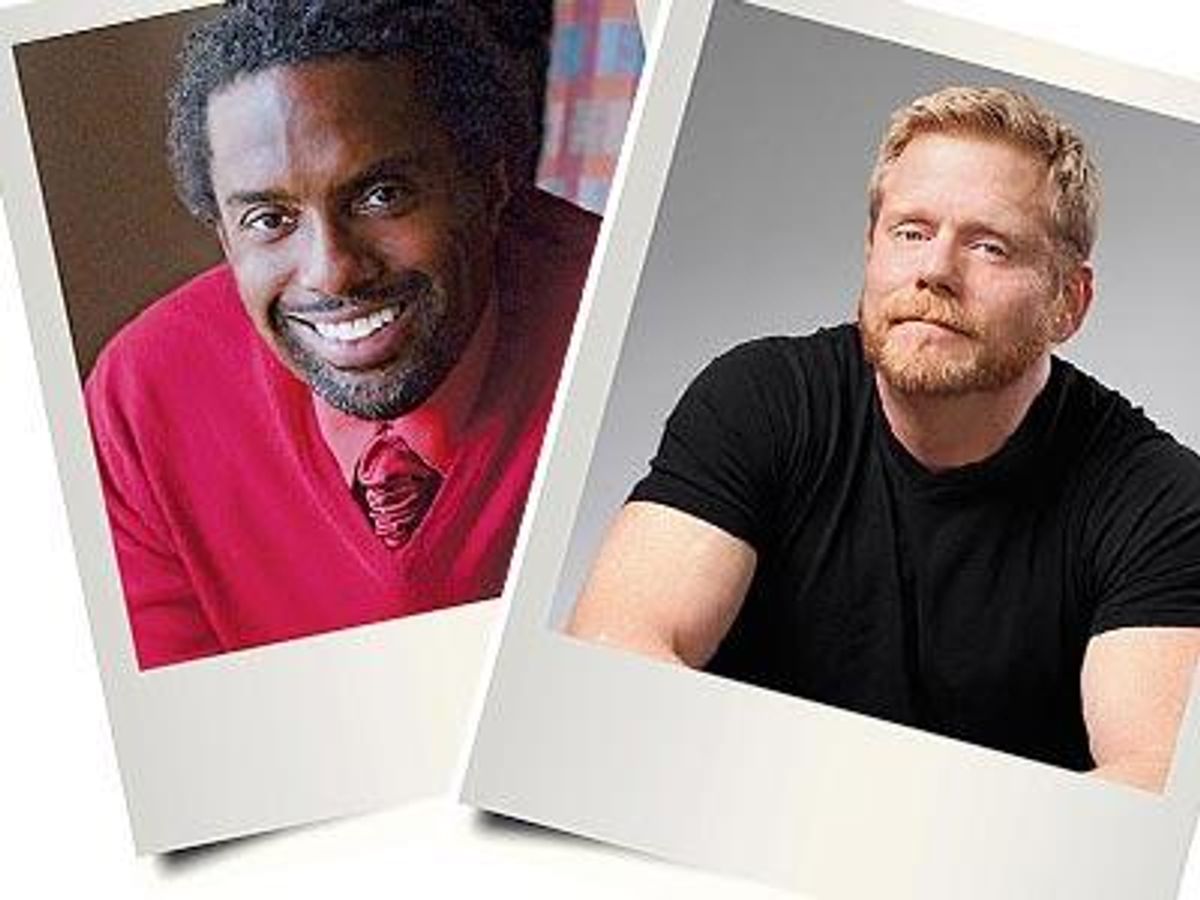
 es it can even get better post–HIV diagnosis if you have the right medical and emotional support. Sure, things might be a little more complicated, but it is by navigating those complications that you get to know yourself and find the strength that you might not have known you had.
es it can even get better post–HIV diagnosis if you have the right medical and emotional support. Sure, things might be a little more complicated, but it is by navigating those complications that you get to know yourself and find the strength that you might not have known you had. Khafre K. Abif
Khafre K. Abif Greg Revenj
Greg Revenj David Duran
David Duran Eric Woodring
Eric Woodring Mark S. King
Mark S. King Jeremiah Johnson
Jeremiah Johnson






































